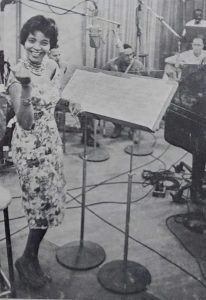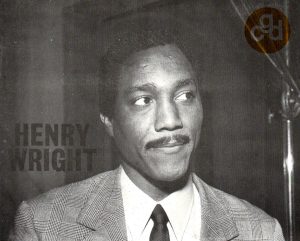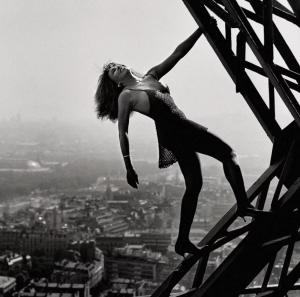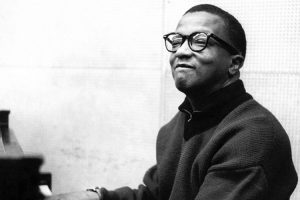Podcast: Play in new window | Download (Duration: 1:23:02 — 91.3MB) | Embed
Subscribe: Spotify | TuneIn | RSS | More
This week’s episode is the first in what I hope will be a series featuring vocalists who performed with Duke Ellington, Today’s artist is the playful and sophisticated Joya Sherrill (20 August 1924 – 28 June 2010) who, by a series of happy “accidents,” became one of the best-remembered and most enduring of Ellington’s songsters while still a teenager. For she was not only a musically- and vocally-gifted singer, she was also a lyricist and composer. She herself composed the lyrics to the Billy Strayhorn classic “Take the ‘A’ Train,” as well as another Ellington standard, “Kissing Bug,” she also was the first singer to record “I’m Beginning to See the Light” and numerous other Ellington and Strayhorn standards. Though she left the Ellington Orchestra before 1950, she continued to appear with them in various projects, including his 1957 television extravaganza A Drum Is a Woman (alongside soprano Margaret Tynes), and My People, his 1963 extravaganza commemorating the centenary of the Emancipation Proclamation. She also performed with the Benny Goodman Orchestra on their 1962 tour of Russia, and was the first African American host of a children’s television program, Time for Joya (later renamed Joya’s Fun School) which began in 1970 and ran in reruns until 1982 on local New York television. In this endeavor she was assisted by another powerhouse Black musician, Luther Henderson, who also arranged and conducted her altogether individual 1959 studio album, Sugar and Spice, which put a sophisticated spin on old Mother Goose rhymes. As late as 1994 she continued to perform and record the music of Duke Ellington and others. Here is an artist whose combination of élan and exuberance is well worth rediscovering and celebrating.
Countermelody is a podcast devoted to the glory and the power of the human voice raised in song. Singer and vocal aficionado Daniel Gundlach explores great singers of the past and present focusing in particular on those who are less well-remembered today than they should be. Daniel’s lifetime in music as a professional countertenor, pianist, vocal coach, voice teacher, and journalist yields an exciting array of anecdotes, impressions, and “inside stories.” At Countermelody’s core is the celebration of great singers of all stripes, their instruments, and the connection they make to the words they sing. By clicking on the following link (https://linktr.ee/CountermelodyPodcast) you can find the dedicated Countermelody website which contains additional content including artist photos and episode setlists. The link will also take you to Countermelody’s Patreon page, where you can pledge your monthly support at whatever level you can afford. Bonus episodes available exclusively to Patreon supporters are currently available and further bonus content including interviews and livestreams is planned for the upcoming season.



